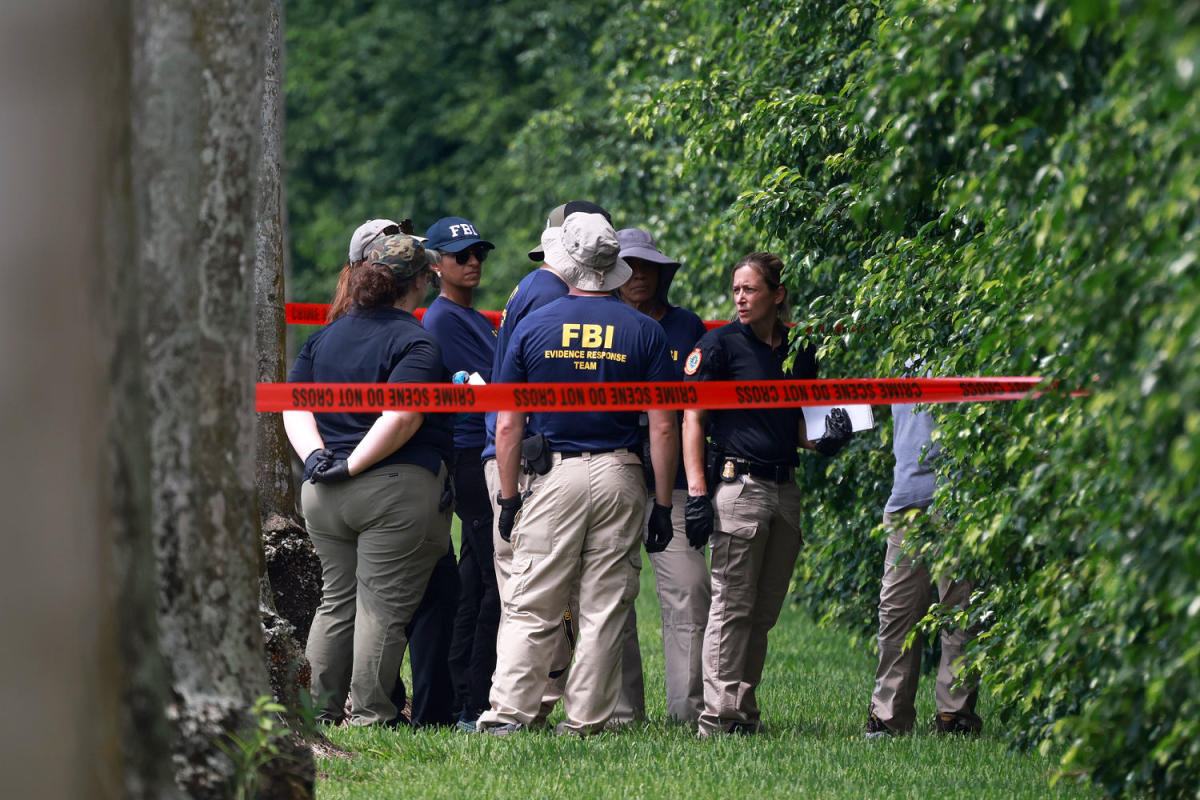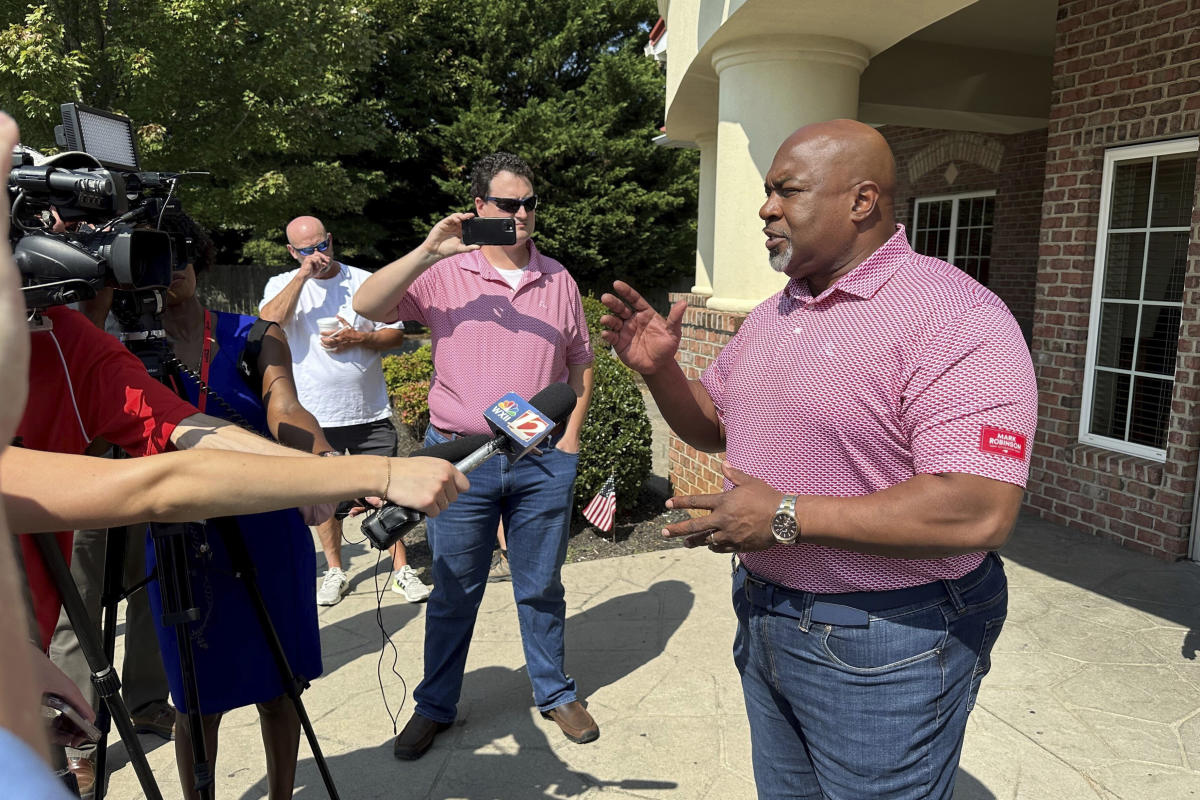NEW YORK – President Joe Biden addressed the United Nations for the final time Tuesday, defending his record and urging an expansion of alliances and democracy to steady a world buffeted by war — even as conflicts in the Middle East and Europe appeared poised to escalate in the concluding months of his term.
"Our task, our test, is to make sure that the forces holding us together are stronger than those pulling us apart,” Biden said, “that the principles of partnership that we come here each year to uphold can withstand the challenges, that the center holds once again.”
Biden traced the progress made during his half-century in politics and made his case that his time in office, which followed four tumultuous years of President Donald Trump, made the world safer and steadier. At times he took a valedictory tone, pointing to his role in renewing and expanding international organizations, global efforts to stand up to autocrats and a push for a post-pandemic world to grow more prosperous.
But the moment also offered a stark reminder of the limits of presidential power and the challenges that Biden faced that remain unfinished. In many parts of the globe, conflict and chaos undercut Biden’s claim that he was leaving behind a more stable world.
An escalating exchange of missiles between Israel and Hezbollah over Lebanon’s border risked triggering a regional war. In Gaza, a cease-fire between Israel and Hamas remains out of grasp after nearly a year of fighting. And in Europe, the war between Russia and Ukraine has slogged into a third year with both sides suffering immense casualties.
Biden used the speech to take on each crisis in turn.
The president spoke as rockets continued to streak the sky over Lebanon, with that nation’s health ministry saying that more than 500 people had been killed since Israel began its bombardment of Hezbollah. That Iran-backed militant group had ratcheted up its own attacks, but Biden urged the two sides cease hostilities before the region is engulfed in conflict.
“Full-scale war is not in anyone’s interest,” Biden said. “Diplomatic solution is still possible. It’s the only path.”
The president also urged that “now was the time” to finally achieve a cease-fire deal and took each side to task for delays. While he underscored Israel’s right to defend itself after the Oct. 7 terror attacks, he said that Palestinian lives “must be protected.”
Biden administration officials plan to continue talks for a Gaza cease-fire — but there are few expectations that an agreement could be reached soon. There is great skepticism that either Hamas leader Yahya Sinwar or Israeli Prime Minister Benjamin Netanyahu is anxious to make a deal, and the Israeli leader’s latest demands have again raised suspicions within the White House that he wants to prolong the war to keep his own grip on power — and potentially help Trump, according to three administration officials not authorized to publicly discuss private conversations. Biden also rebuked the Israeli settler violence in the West Bank and again called for a two-state solution, an outcome that Netanyahu has not embraced of late.
As for Ukraine, Biden was unambiguous and said that the world must continue to stand with Kyiv as it continues to fight off Russian President Vladimir Putin’s invasion.
“The good news is that Putin’s war has failed in its core aim. But we can not let up,” Biden said. “The world has another choice to make: Will we sustain or support? Or walk away and let a nation be destroyed. We can not grow weary. We can not look away.”
That chaos has fueled Trump’s campaign claim that he could bring order to a violent planet. The prospect of his return to the White House hovered over the United Nations, alternately worrying and enticing other world leaders unsure of America’s future role in the world.
While Biden’s speech was not overtly political, it was delivered against an unavoidable electoral backdrop. If his vice president and hoped-for successor, Kamala Harris, wins in November, her foreign policy will likely not differ greatly from Biden’s internationalist vision. But a Trump victory may return the United States to a more isolationist, transactional pose. The former president has made clear his disdain for alliances and global organizations.
If returned to power, Trump has suggested he would embolden Netanyahu to finish the war while also cutting aid to Ukraine and potentially abandoning NATO. Biden and Harris, meanwhile, are slated to meet with Ukrainian President Volodymyr Zelenskyy in Washington on Thursday. A frustrated Zelenskyy has urged Washington to allow his military to use U.S.-supplied weapons deep into Russia, which is part of the “victory plan” he is supposed to present to the leaders this week.
Biden also focused in his speech on an array of other issues, including the climate crisis and the environment; a push to steady relations with China; the need to improve the issuance of humanitarian assistance to war-ravaged areas like Gaza, Ukraine and Sudan; and the implications of new technologies such as artificial intelligence.
And he defended his choice to withdraw the American military from Afghanistan in 2021, though the tumultuous exit led to violence and a rollback of freedoms there, and has become a target of Republicans on Capitol Hill.
"It was a hard decision, but the right decision,” Biden said. “Four American presidents had to face that decision. But I was determined not to leave it to a fifth.”
The president will have a few more moments in the international spotlight — including an appearance at the G20 summit in November and a likely final meeting with China’s Xi Jinping — but his speech Tuesday at the United Nations acted as a capstone of the more than 50 years Biden has spent on the world stage — as a senator, including a stint as the chair of the Foreign Relations Committee, as vice president and as president.
Addressing the world leaders, he reflected on the “difficult” decision to abandon his reelection bid, ruefully noting that “there is so much more I want to get done.” But he placed his exit in a global context, reminding his peers to make decisions without their own political interests in mind.
“Some things are more important than staying in power,” Biden said. “It’s your people.”
Harris is not slated to attend the meetings in New York this week, although she may meet with some world leaders in Washington. Still, the global landscape she may inherit will be affected by this and other Biden administration efforts in the closing three months of his term.
While in New York, Biden will also meet with the secretary general of the United Nations, António Guterres, and deliver separate addresses later Tuesday on both climate change and the global opioid crisis. He is also expected to have a series of meetings — some formal, some informal — with leaders along the sidelines of the summit, including one with Vietnam’s new president.

 German (DE)
German (DE)  English (US)
English (US)  Spanish (ES)
Spanish (ES)  French (FR)
French (FR)  Hindi (IN)
Hindi (IN)  Italian (IT)
Italian (IT)  Russian (RU)
Russian (RU) 






















Comments